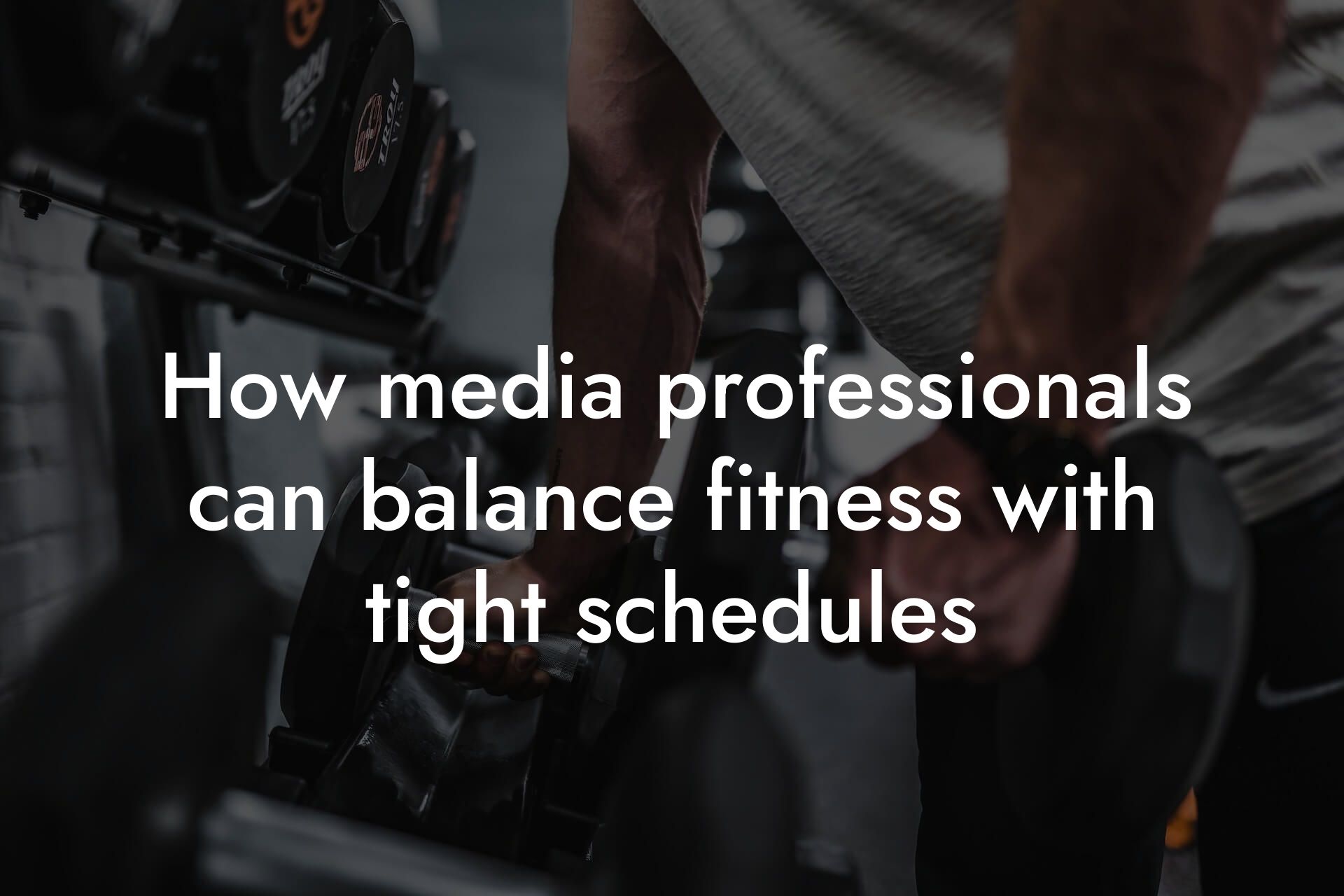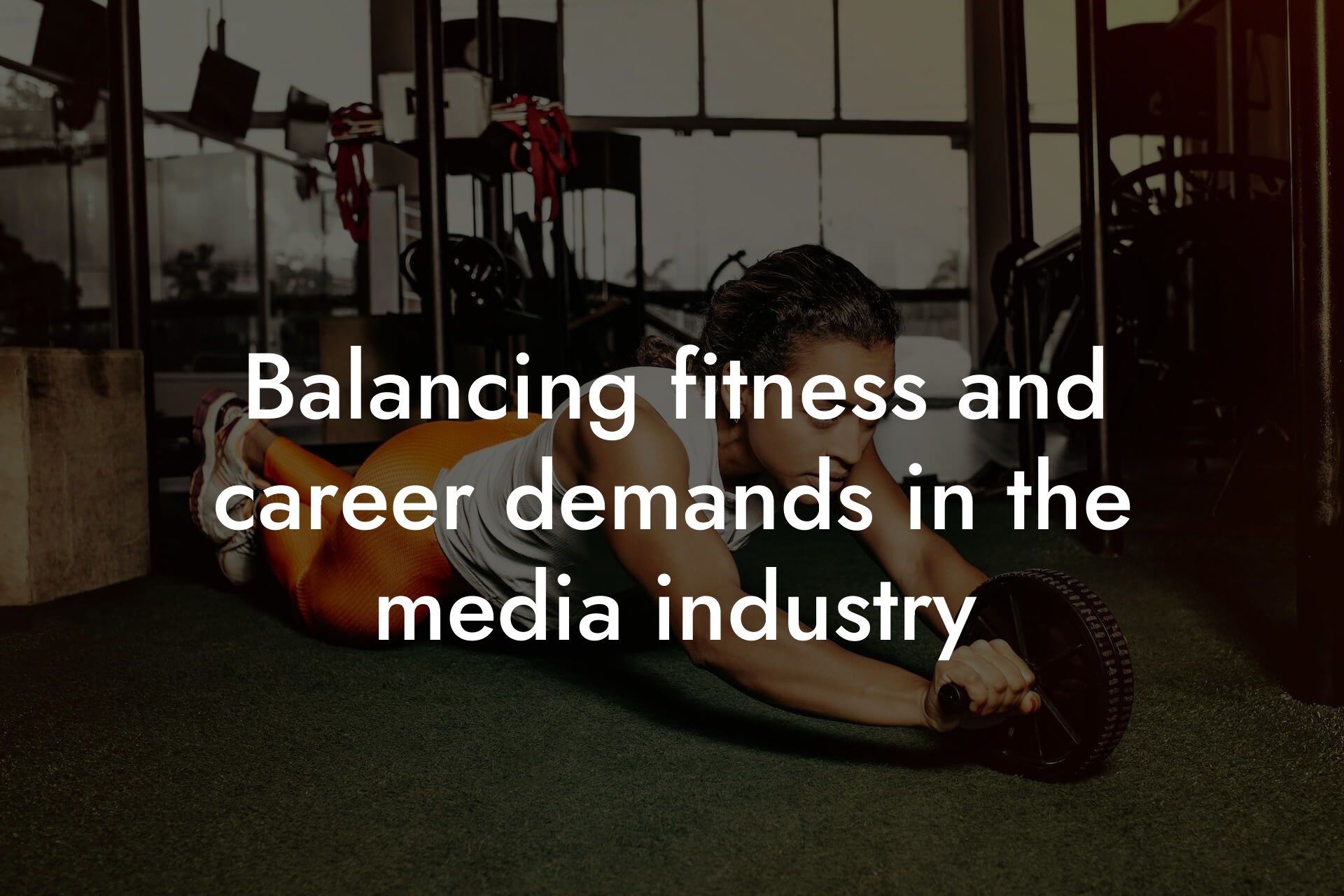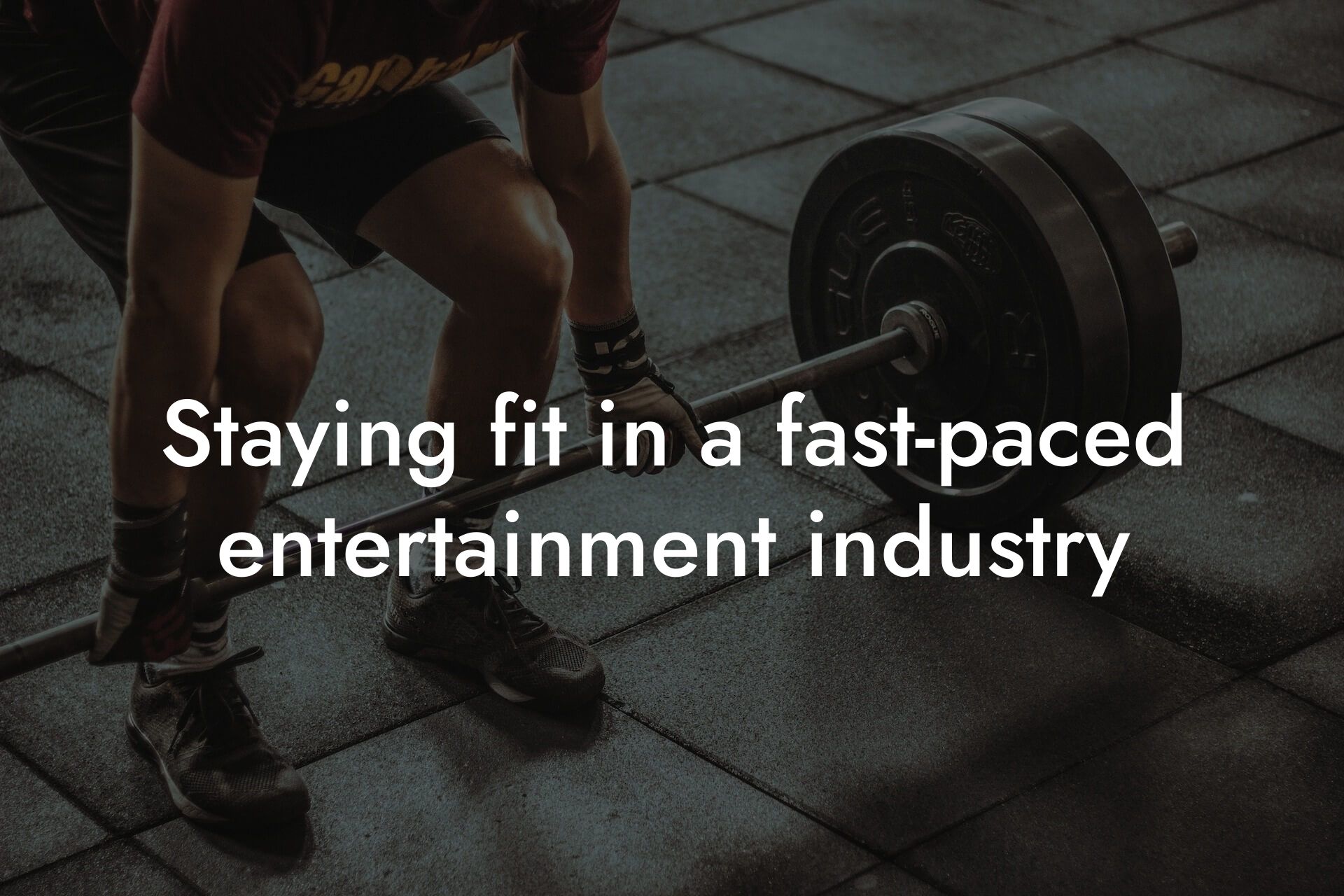As a high-earning professional, you understand the importance of maintaining a polished and put-together appearance, especially when you're in front of the camera. Whether you're a model, influencer, or entrepreneur, looking your best can make all the difference in your career. At Tano Performance Group, we're committed to helping you achieve your physical goals and providing you with the tools you need to succeed. In this article, we'll dive into the nutrition tips you need to know to stay camera-ready.
Table of Contents
The Importance of Hydration
Hydration is essential for maintaining healthy, glowing skin, which is crucial for looking camera-ready. When you're dehydrated, your skin can appear dull, dry, and tired, making you look older than you actually are. Aim to drink at least eight glasses of water per day, and avoid sugary drinks that can dehydrate you further. Additionally, incorporate hydrating foods like cucumbers, watermelon, and celery into your diet to help flush out toxins and keep your skin looking radiant.
Eat Foods Rich in Antioxidants
Antioxidants are powerful compounds that help combat free radicals, which can cause damage to your skin and body. Foods rich in antioxidants, such as berries, leafy greens, and nuts, can help reduce inflammation and promote healthy aging. Some of the best antioxidant-rich foods for camera-ready skin include:
- Blueberries: Packed with vitamin C and anthocyanins, blueberries can help reduce fine lines and wrinkles.
- Spinach: Rich in lutein and zeaxanthin, spinach can help protect your skin from sun damage and reduce the appearance of dark circles under your eyes.
- Walnuts: High in vitamin E and omega-3 fatty acids, walnuts can help reduce inflammation and promote healthy skin cell growth.
Incorporate Healthy Fats into Your Diet
Healthy fats are essential for maintaining healthy skin, hair, and nails. Foods rich in omega-3 fatty acids, such as salmon and avocado, can help reduce inflammation and promote healthy skin cell growth. Additionally, incorporate nuts and seeds like almonds, chia seeds, and flaxseeds into your diet to provide your body with the essential fatty acids it needs to thrive.
Stay Away from Processed Foods
Processed foods are often high in sugar, salt, and unhealthy fats, which can cause inflammation and damage to your skin. Avoid foods like white bread, sugary snacks, and frozen meals, and opt for whole, nutrient-dense foods instead. Some of the worst offenders for camera-ready skin include:
- Refined sugar: Can cause inflammation and lead to premature aging.
- Fried foods: High in unhealthy fats and calories, fried foods can cause weight gain and skin damage.
- Processed meats: High in sodium and preservatives, processed meats can cause inflammation and damage to your skin.
Get Enough Protein
Protein is essential for building and repairing muscle tissue, which is crucial for maintaining a toned and camera-ready physique. Aim to consume at least 0.8-1 gram of protein per pound of body weight per day, and incorporate protein-rich foods like lean meats, fish, and eggs into your diet. Some of the best protein-rich foods for camera-ready skin include:
- Greek yogurt: High in protein and calcium, Greek yogurt can help promote healthy skin and bone density.
- Chicken breast: Rich in protein and lean amino acids, chicken breast can help build and repair muscle tissue.
- Turkey: High in protein and omega-3 fatty acids, turkey can help promote healthy skin and hair growth.
Don't Forget About Bone Density
As you age, your bone density can decline, leading to a range of health problems, including osteoporosis and fractures. Maintaining healthy bone density is crucial for maintaining a camera-ready physique, and can be achieved through a combination of diet and exercise. Some of the best foods for promoting healthy bone density include:
- Calcium-rich foods: Dairy products, leafy greens, and fortified plant-based milk can help promote healthy bone density.
- Vitamin D-rich foods: Fatty fish, egg yolks, and fortified dairy products can help regulate calcium levels and promote healthy bone density.
- Exercise: Regular exercise, especially weight-bearing activities like running and weightlifting, can help promote healthy bone density.
Get Enough Sleep
Sleep is essential for maintaining healthy skin, hair, and nails. When you're well-rested, your skin looks more radiant, your eyes are brighter, and your overall appearance is more polished. Aim to get at least 7-8 hours of sleep per night, and establish a consistent sleep routine to help regulate your body's natural rhythms.
Monitor Your Progress with DEXA Scans
At Tano Performance Group, we understand the importance of tracking your progress and making data-driven decisions about your health. That's why we offer DEXA scans, which provide a comprehensive assessment of your body composition, bone density, and other health metrics. By regularly monitoring your progress with DEXA scans, you can make informed decisions about your diet and exercise routine, and achieve your physical goals faster.
By incorporating these nutrition tips into your daily routine, you can maintain a camera-ready physique and feel confident and polished in front of the camera. Remember to stay hydrated, eat foods rich in antioxidants, and incorporate healthy fats and protein into your diet. And don't forget to monitor your progress with regular DEXA scans to ensure you're on track to achieving your physical goals.
Frequently Asked Questions
What is the importance of nutrition in staying camera-ready?
Nutrition plays a vital role in maintaining a camera-ready physique. A well-balanced diet provides the necessary fuel for your body to function optimally, resulting in a radiant and healthy appearance. A diet rich in essential nutrients helps to improve skin texture, reduce inflammation, and boost energy levels, making you look and feel your best in front of the camera.
How does a healthy diet impact my skin?
A healthy diet has a significant impact on your skin. A diet rich in antioxidants, vitamins, and minerals helps to protect your skin from damage caused by free radicals, resulting in a smoother, more even-toned complexion. Additionally, a diet high in omega-3 fatty acids and vitamin C can help to reduce inflammation and improve skin elasticity, giving you a more youthful and radiant appearance.
What are the best foods for a camera-ready physique?
Incorporating foods rich in protein, healthy fats, and complex carbohydrates into your diet can help to support a camera-ready physique. Some of the best foods include lean proteins like chicken and fish, healthy fats like avocado and nuts, and complex carbohydrates like brown rice and quinoa. Additionally, incorporating fruits and vegetables rich in antioxidants and fiber can help to support overall health and well-being.
How does hydration impact my appearance?
Hydration is essential for maintaining a camera-ready appearance. Drinking plenty of water helps to flush out toxins and keep your skin hydrated, resulting in a smoother, more radiant complexion. Dehydration can lead to dry, dull-looking skin, making it essential to drink at least eight glasses of water per day.
What is the role of macronutrients in a camera-ready diet?
Macronutrients, including protein, carbohydrates, and fats, play a crucial role in a camera-ready diet. Protein helps to build and repair muscle tissue, carbohydrates provide energy, and fats support hormone production and overall health. A balanced ratio of macronutrients can help to support a lean, toned physique and improve overall health.
How does meal frequency impact my physique?
Meal frequency can have a significant impact on your physique. Eating smaller, more frequent meals throughout the day can help to boost metabolism and support weight loss, while skipping meals can lead to muscle loss and a slower metabolism. Aim to eat at least five meals per day, including three main meals and two snacks.
What is the importance of portion control?
Portion control is essential for maintaining a camera-ready physique. Eating large portions can lead to weight gain and bloating, while eating too little can result in muscle loss and fatigue. Aim to eat portions that are appropriate for your body size and activity level, and avoid overeating or undereating.
How does stress impact my appearance?
Stress can have a significant impact on your appearance. Chronic stress can lead to inflammation, skin issues, and weight gain, making it essential to manage stress levels through techniques like meditation, yoga, and deep breathing exercises.
What are the best snacks for a camera-ready physique?
Incorporating healthy snacks into your diet can help to support a camera-ready physique. Some of the best snacks include fruits and vegetables, nuts and seeds, lean proteins like hard-boiled eggs, and healthy fats like avocado. Aim to choose snacks that are nutrient-dense and low in added sugars and salt.
How does sleep impact my appearance?
Sleep is essential for maintaining a camera-ready appearance. During sleep, your body repairs and regenerates damaged skin cells, resulting in a smoother, more radiant complexion. Aim to get at least seven hours of sleep per night to support overall health and well-being.
What is the role of supplements in a camera-ready diet?
Supplements can play a supporting role in a camera-ready diet. Certain supplements like protein powder, creatine, and omega-3 fatty acids can help to support muscle growth and overall health. However, it's essential to consult with a healthcare professional before adding any supplements to your diet.
How does exercise impact my appearance?
Exercise is essential for maintaining a camera-ready physique. Regular exercise helps to build and tone muscle, improve skin texture, and boost energy levels. Aim to incorporate a combination of cardio and strength training exercises into your routine to support overall health and well-being.
What are the best exercises for a camera-ready physique?
Incorporating exercises that target multiple muscle groups at once can help to support a camera-ready physique. Some of the best exercises include squats, lunges, push-ups, and rows. Aim to incorporate a combination of compound exercises into your routine to support overall health and well-being.
How does body fat percentage impact my appearance?
Body fat percentage can have a significant impact on your appearance. Maintaining a healthy body fat percentage can help to improve skin texture, reduce inflammation, and boost energy levels. Aim to maintain a body fat percentage between 10-15% for men and 15-20% for women.
What is the importance of bone density in a camera-ready physique?
Bone density is essential for maintaining a camera-ready physique. Maintaining strong bones can help to improve posture, reduce the risk of injury, and support overall health. Incorporating exercises that target bone density, such as weightlifting and resistance training, can help to support overall health and well-being.
How does a camera-ready diet impact my energy levels?
A camera-ready diet can have a significant impact on your energy levels. Eating a diet rich in nutrient-dense foods can help to boost energy levels, improve mental clarity, and support overall health. Aim to incorporate foods rich in iron, B vitamins, and omega-3 fatty acids into your diet to support energy production.
What are the best foods for energy production?
Incorporating foods rich in iron, B vitamins, and omega-3 fatty acids into your diet can help to support energy production. Some of the best foods for energy production include lean proteins like chicken and fish, whole grains like brown rice and quinoa, and fruits and vegetables like spinach and berries.
How does a camera-ready diet impact my mental health?
A camera-ready diet can have a significant impact on your mental health. Eating a diet rich in nutrient-dense foods can help to improve mood, reduce stress and anxiety, and support overall mental health. Aim to incorporate foods rich in omega-3 fatty acids, vitamin D, and magnesium into your diet to support mental health.
What are the best foods for mental health?
Incorporating foods rich in omega-3 fatty acids, vitamin D, and magnesium into your diet can help to support mental health. Some of the best foods for mental health include fatty fish like salmon, leafy greens like spinach, and nuts and seeds like almonds and pumpkin seeds.
How does a camera-ready diet impact my overall health?
A camera-ready diet can have a significant impact on your overall health. Eating a diet rich in nutrient-dense foods can help to improve heart health, reduce the risk of chronic disease, and support overall health and well-being. Aim to incorporate a variety of fruits, vegetables, whole grains, and lean proteins into your diet to support overall health.
What are the best tips for staying camera-ready?
Some of the best tips for staying camera-ready include eating a balanced diet, staying hydrated, getting enough sleep, and exercising regularly. Additionally, managing stress levels, getting regular check-ups, and taking care of your skin can help to support a camera-ready appearance.
How can I maintain a camera-ready physique long-term?
Maintaining a camera-ready physique long-term requires a commitment to a healthy lifestyle. Aim to make healthy choices a habit by incorporating a balanced diet, regular exercise, and stress management techniques into your daily routine. Additionally, getting regular check-ups and taking care of your skin can help to support a camera-ready appearance over time.
What are the benefits of working with a nutritionist or personal trainer?
Working with a nutritionist or personal trainer can provide personalized guidance and support to help you achieve your fitness goals. A nutritionist can help you develop a customized meal plan, while a personal trainer can help you develop a workout routine tailored to your needs and goals.
How can I stay motivated to maintain a camera-ready physique?
Staying motivated to maintain a camera-ready physique requires setting realistic goals and celebrating small victories along the way. Additionally, finding a workout buddy or accountability partner can help to provide motivation and support. Rewarding yourself for reaching milestones can also help to stay motivated and on track.
Here are some related articles you might love...
- How media professionals can balance fitness with tight schedules
- Balancing fitness and career demands in the media industry
- Staying fit in a fast-paced entertainment industry
- How DEXA scans can help media professionals maintain their physique
- The impact of physical health on performance in media roles
- Quick workouts for actors and entertainers on set
- Managing stress through physical fitness in the entertainment industry
- The role of body composition in on-screen appearances
- How to maintain a fit physique during long production hours
Zak Faulkner
Zak Faulkner is a leading authority in the realm of physical health and body composition analysis, with over 15 years of experience helping professionals optimise their fitness and well-being. As one the experts behind Tano Performance Group, Zak has dedicated his career to providing in-depth, science-backed insights that empower clients to elevate their physical performance and overall health.
With extensive knowledge of DEXA technology, Zak specializes in delivering comprehensive body assessments that offer precise data on body fat, muscle mass, bone density, and overall physique. His expertise enables individuals to make informed decisions and achieve their fitness goals with accuracy and confidence. Zak’s approach is rooted in a deep understanding of human physiology, combined with a passion for helping clients unlock their full potential through personalised strategies.
Over the years, Zak has earned a reputation for his commitment to excellence, precision, and client-focused service. His guidance is trusted by top professionals who demand the best when it comes to their health. Whether advising on fitness programs, nutritional strategies, or long-term wellness plans, Zak Faulkner’s insights are a valuable resource for anyone serious about taking their health and fitness to the next level.
At Tano Performance Group, Zak continues to lead our Content Team revolutionising how professionals approach their physical health, offering unparalleled expertise that drives real results.




